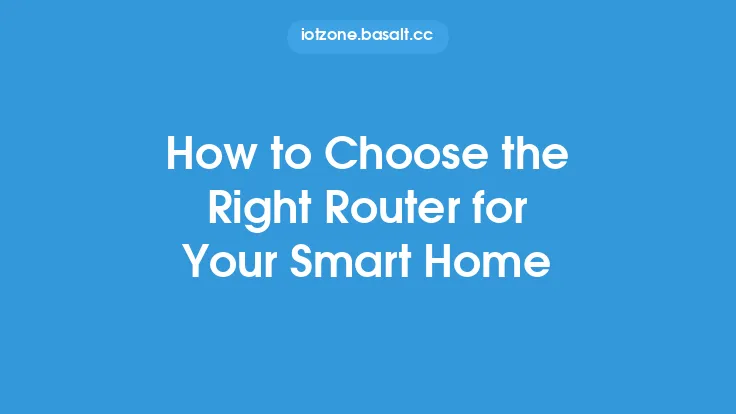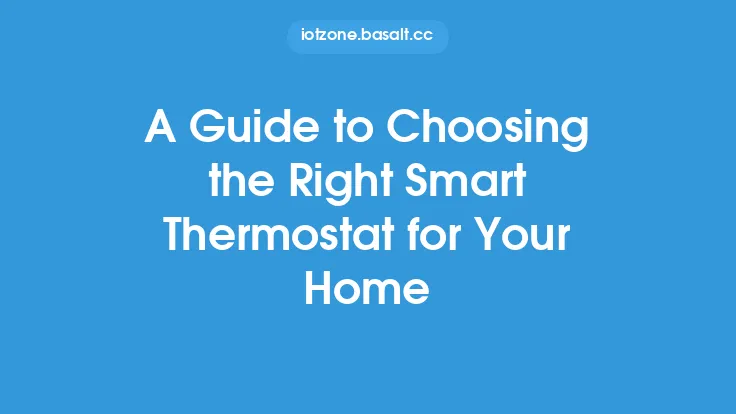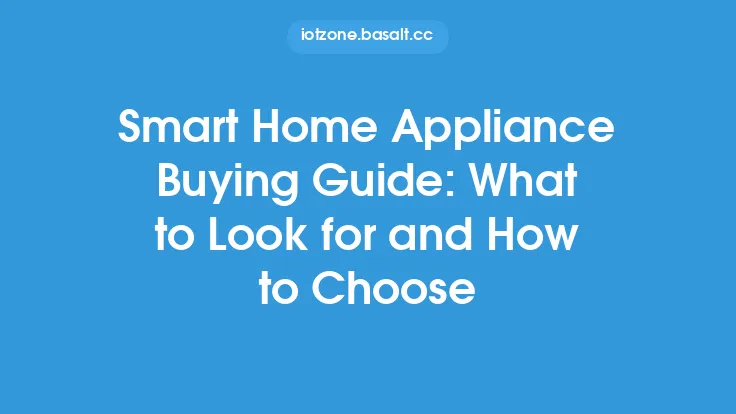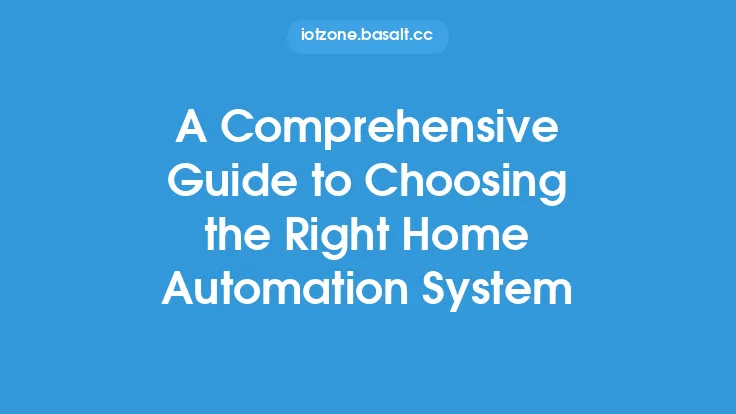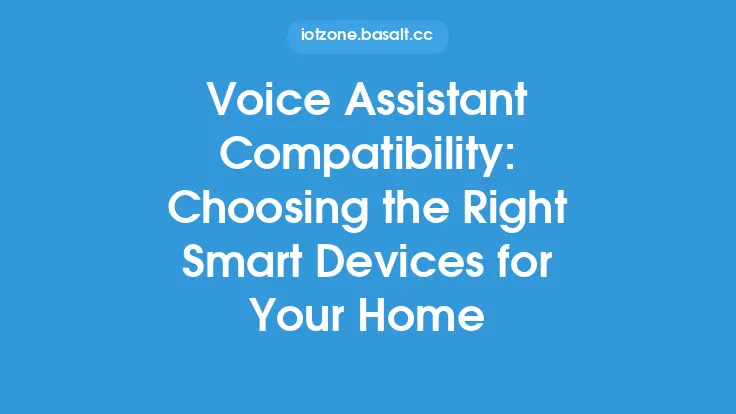When it comes to choosing the right home security system for your smart home, there are several factors to consider. With so many options available in the market, it can be overwhelming to decide which system is best suited for your needs. In this article, we will delve into the key considerations and features to look for when selecting a home security system, helping you make an informed decision.
Understanding Your Security Needs
Before selecting a home security system, it's essential to assess your security needs. Consider the size of your home, the number of entry points, and the type of assets you want to protect. Think about your lifestyle and the level of security you require. For example, if you have a large family or live in a high-crime area, you may need a more comprehensive system. On the other hand, if you live alone or in a secure neighborhood, a basic system may suffice. It's also important to consider any specific security concerns you may have, such as protecting valuable items or ensuring the safety of pets.
Types of Home Security Systems
There are several types of home security systems available, each with its own unique features and benefits. Wired systems are traditional and reliable, but they can be more expensive to install and may require professional assistance. Wireless systems, on the other hand, are easier to install and more flexible, but they may be more vulnerable to interference and hacking. Hybrid systems combine the benefits of both wired and wireless systems, offering a more comprehensive and reliable solution. When choosing a system, consider the pros and cons of each type and select the one that best fits your needs and budget.
Features to Look for in a Home Security System
A good home security system should have several key features to ensure effective protection. These include door and window sensors, motion detectors, and video cameras. Door and window sensors alert you to any unauthorized entry, while motion detectors detect movement within the home. Video cameras provide visual evidence and can be used to monitor your home remotely. Other features to consider include alarm systems, smart locks, and environmental sensors. Alarm systems alert you to potential threats, while smart locks provide secure and convenient access control. Environmental sensors detect changes in temperature, humidity, and air quality, helping to prevent damage and ensure a healthy living environment.
Smart Home Integration
One of the key benefits of a home security system is its ability to integrate with your smart home. Look for systems that are compatible with popular smart home platforms, such as Amazon Alexa or Google Home. This allows you to control your security system remotely and receive notifications and alerts on your smartphone or tablet. Integration with other smart devices, such as lights and thermostats, can also enhance the overall security and convenience of your home. For example, you can set your lights to turn on automatically when you enter a room or adjust your thermostat to save energy when you're away.
Monitoring and Response
Another critical aspect of a home security system is monitoring and response. Look for systems that offer 24/7 monitoring and rapid response times. This ensures that any potential threats are addressed quickly and effectively, providing you with peace of mind and protecting your home and loved ones. Some systems also offer self-monitoring options, allowing you to monitor your home remotely and receive notifications and alerts on your smartphone or tablet. Consider the level of monitoring and response you require and select a system that meets your needs.
Power and Backup
A home security system requires a reliable power source to function effectively. Look for systems that have a backup power source, such as a battery or generator, to ensure continuous operation during power outages. This is especially important for systems that rely on internet connectivity, as a power outage can leave your home vulnerable to security breaches. Consider the power requirements of your system and select one that has a reliable backup power source.
Installation and Maintenance
Finally, consider the installation and maintenance requirements of your home security system. Look for systems that are easy to install and require minimal maintenance. Some systems may require professional installation, while others can be installed DIY. Consider the cost of installation and maintenance, as well as any ongoing fees or subscriptions. A well-maintained system is essential to ensuring effective protection and preventing false alarms.
Conclusion
Choosing the right home security system for your smart home requires careful consideration of several factors, including your security needs, the type of system, features, smart home integration, monitoring and response, power and backup, and installation and maintenance. By understanding your security needs and selecting a system that meets your requirements, you can enjoy peace of mind and protect your home and loved ones. Remember to research and compare different systems, read reviews, and consult with experts to ensure you make an informed decision. With the right home security system, you can enjoy a safe and secure smart home.

